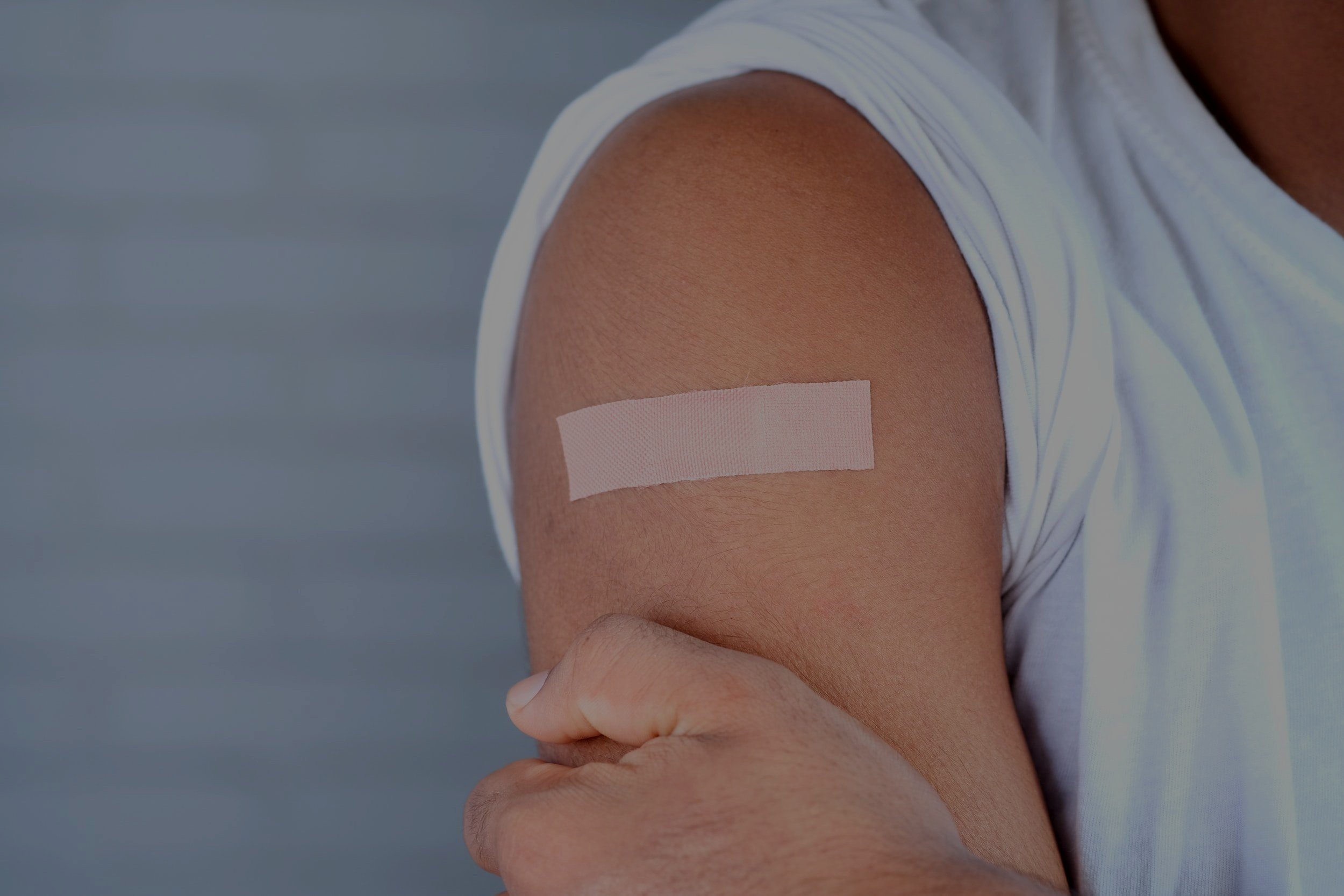
Vaccination
Vaccination is the safest and most effective way to protect yourself and your loved ones against infectious diseases, and is a key component in preventive care.
Why get vaccinated?
Even though you may not realise it, your body is in a never-ending battle fighting off bacteria and viruses as and when it is exposed to them. Getting vaccinated strengthens your immune system and enables it to be able to ward off future exposures to these organisms.
Vaccines prevent up to 3 million deaths worldwide each year. Since vaccines were introduced, diseases like tetanus, smallpox, polio and measles that used to kill or disable millions of people are either fully eradicated or seen very rarely. However, if people stop getting vaccinated, it is possible for such infectious diseases to quickly spread again. This is also why health organisations worldwide advocate getting vaccinated against Covid-19 so strongly during this pandemic.
How does the immune system work?
The immune system is a network of cells, tissues and organs that work together to help fight off infection from bacteria or viruses. Your immune system recognises these pathogens as harmful and will trigger a response by creating antibodies to destroy them. These antibodies remain in the immune system after the infection has resolved, so if the same infection is encountered again, your immune system is readily able to clear it before you fall ill.
What do vaccines do?
Vaccines contain a harmless form of the bacteria or virus that causes the disease. The bacteria or virus will be killed, greatly weakened, or broken down into small parts before use in the vaccine so that they can trigger an immune response without making you sick. The immune system then keeps a “memory” of the disease, so if a vaccinated person encounters the disease years later, their immune system is ready to fight it off and prevent an infection from developing.
What are the vaccines recommended for me?
As there are a myriad of infectious diseases and respective vaccines available, understanding which ones you need to take can be quite complicated. Thankfully, the Ministry of Health’s Expert Committee on Immunisation simplified this process by developing the National Adult Immunisation Schedule (NAIS) in 2017. The NAIS provides clear guidance on vaccinations that persons aged 18 years or older should adopt. The guidelines closely follow recommendations from the World Health Organisation.
The vaccines in the NAIS protect against the following 11 diseases: Influenza, pneumococcal disease, Human Papillomavirus, tetanus, diphtheria, pertussis, measles, mumps, hepatitis B and varicella (chicken pox).
The table below shows the recommended vaccines according to age or persons who have specific medical conditions or indications.
Source: Health Hub
Travel
For those who are intending to travel, there are specific vaccinations required prior to entry into countries that are endemic for certain diseases. These include:
Yellow fever
Rabies
Typhoid
Hepatitis A
Meningitis
Occupational Health
Certain occupations are associated with an increased risk of exposure to vaccine-preventable infections. The occupations that should consider the need for vaccination include, but are not limited to:
Healthcare workers who have contact with patients or work in clinical areas of hospitals
Laboratory personnel who perform cultures or handle certain pathogens
Employees who work in childcare and day care centres, and long-term care facilities
Frontline responders such as armed forces personnel, immigration officers, police and prison officers
Animal handlers and veterinary workers
For children and adolescents aged 17 and below, we can refer to the National Childhood Immunisation Schedule.
Source: Health Hub
Are vaccines safe? Do they have side effects?
All vaccines, as with any medicine, can have side effects. Mild side effects, such as low-grade fever or pain and redness at the site of injection are expected and will go away on their own. Severe side effects are very rare. Getting vaccinated is much safer than getting the infections or complications that result from these infections.
Globally, vaccines are assessed by the relevant authorities to ensure they meet the required standards of quality, safety and efficacy before they are approved for use, based on the best scientific evidence available. Vaccines for use in Singapore are registered with the Health Sciences Authority (HSA). Following approval of the vaccines, their safety is still closely monitored, and any safety concerns are investigated.
Points to note
Plan your schedule in advance. Vaccines need to be taken at least 2 weeks before antibodies can be formed to give any protection. Some vaccinations need to be given over a course of 3 weeks or even one month before it is effective. For example, yellow fever vaccine certificates are only valid 10 days after the vaccination because that is the minimal interval before protective antibodies are formed.
Protect yourself today.
Speak with our doctor to find out which vaccinations are recommended, and if you are suitable for them. We are here to help.


